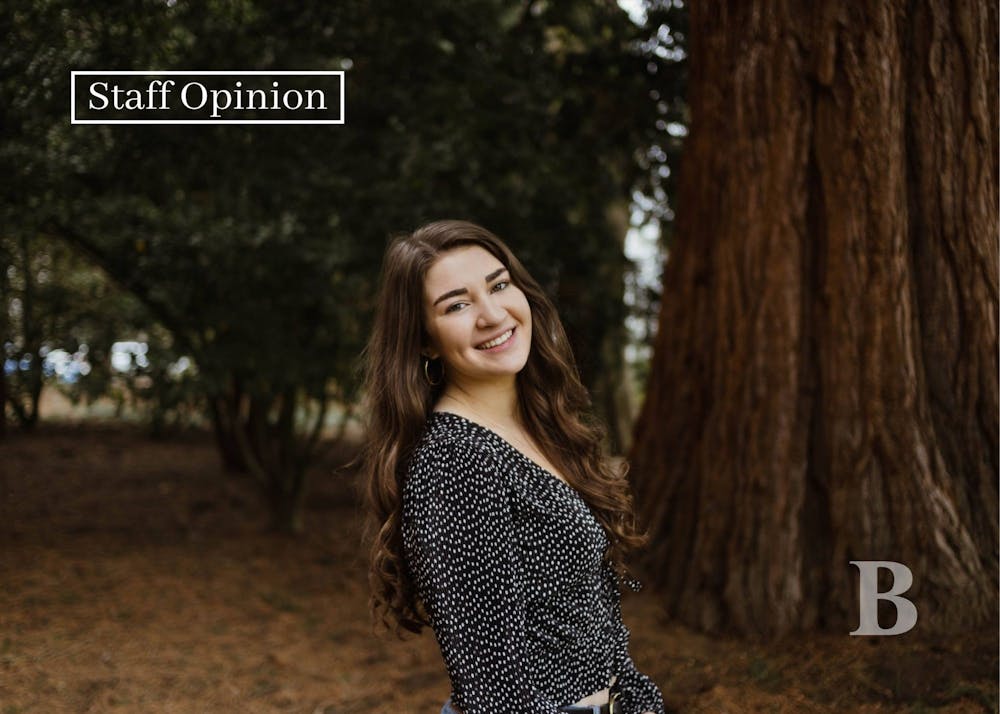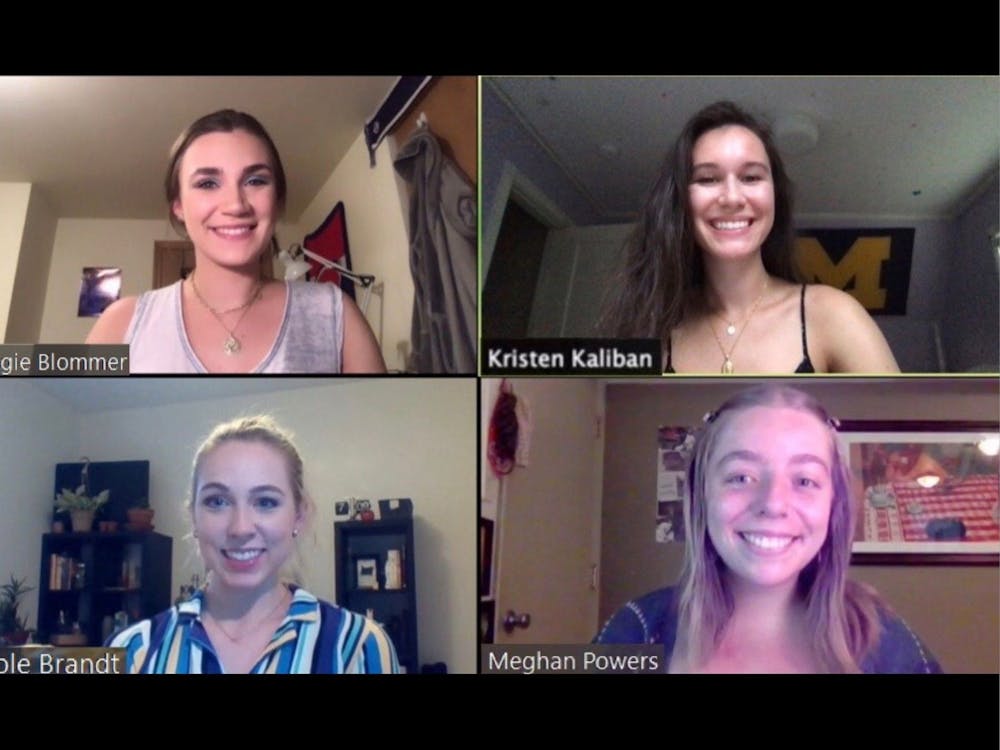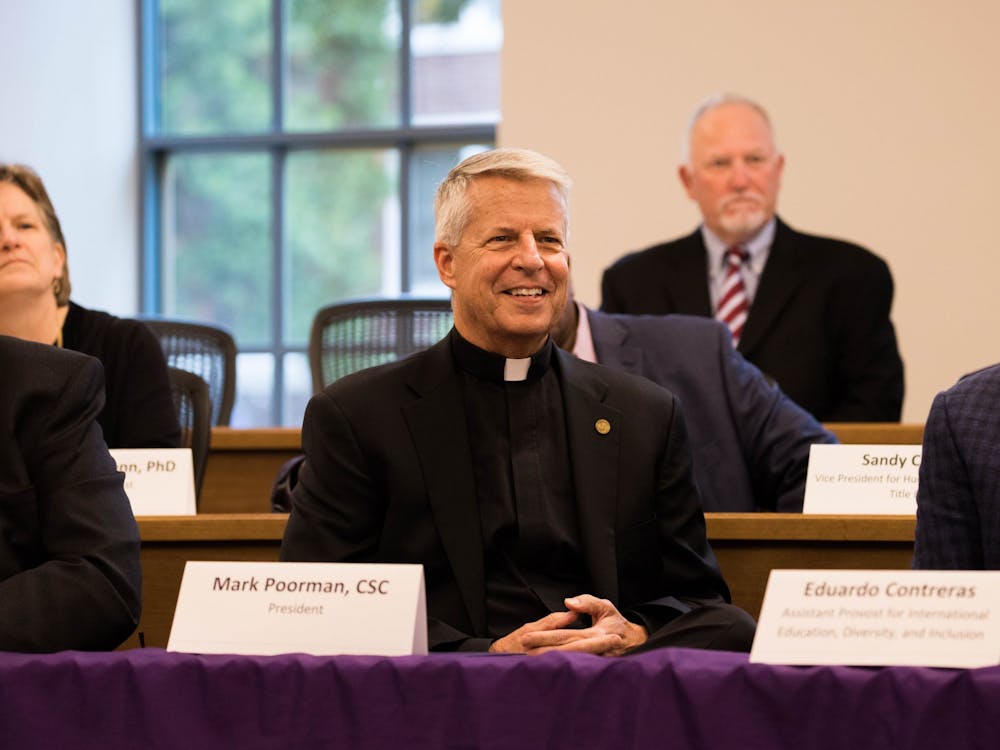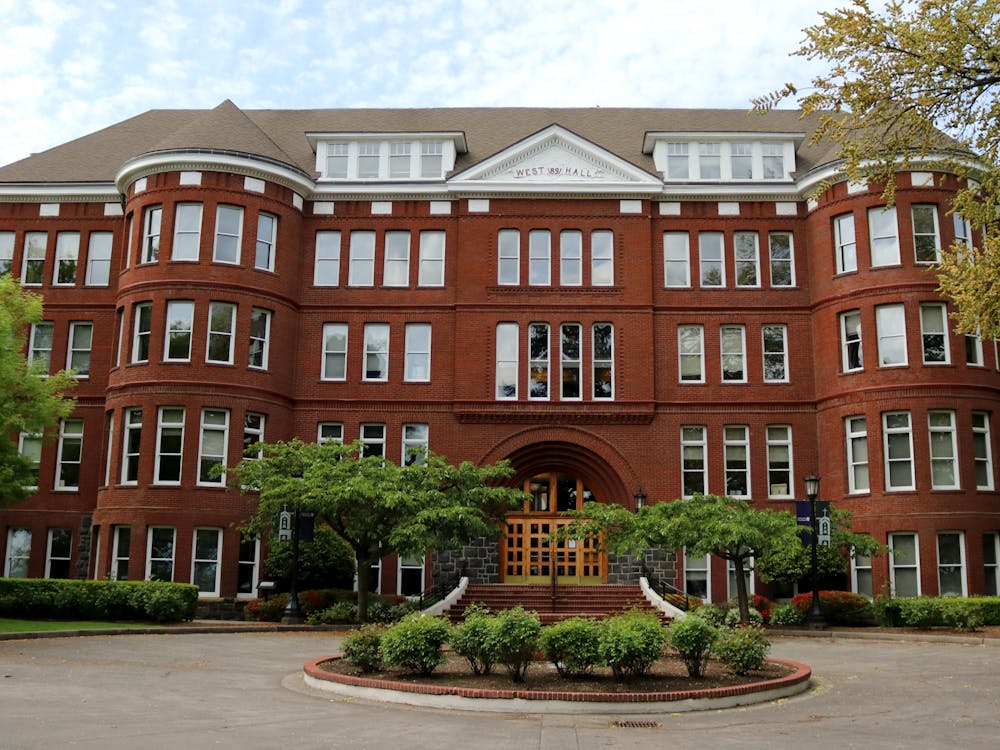“Hey Jew girl!”
As I ran out of the classroom, these were the last words the guest speaker had for me, the most minor of his anti-Semitic rhetoric.
“I’m sorry if I offended you.”
It’s hard to describe what it feels like to be the victim of an anti-Semitic incident. The feelings of isolation, confusion, anger, all culminating in the strongest sense to fight and to flee. I am no stranger to incidents like these, unfortunately. I grew up in a small city in Montana. In high school, I experienced minor infractions such as people telling me I would go to hell for not believing in Jesus, and major ones, like having coins thrown at my feet and being asked if I would pick them up.
I never expected to experience a much worse incident in a classroom that I was paying to be in. In my time at the University of Portland, I have discovered that my religious and cultural identity is not one that is deemed worthy of protecting.
In the spring of 2020, I enrolled in a class on the politics of the Middle East. The politics in that region in particular are extremely complicated. I knew that I would be faced with both fair and unfair criticism of Israel and the Jewish people. I was excited to be in a space where this criticism could be addressed from an academic standpoint, where we could discuss policy in a manner that could truly further my knowledge and where my professor could mediate any discourse that went too far. However, my professor failed to uphold this academic standard. She blatantly disregarded the line between debate that enriches and educates the mind and speech that lowers the level of discourse to name-calling and lies.
Right before spring break, she brought in a guest speaker from Iran. He had no background in academics, no expertise in the politics of the region. He was simply an Iranian dissident who had immigrated to the United States after his family had experienced persecution by the Iranian regime. In fact, she met him while having her car serviced. They became friends, and she later deemed him worthy to speak to our class.
When he spoke to us, what ensued was three long hours of egregious prejudice. He espoused support for recognized terrorist groups, like Hamas and the Houthis. He called all American soldiers cowards. He went on a long-winded tirade about how Iran could and should blow Israel off the face of the earth. Then he explained how no one in that region was anti-Semitic. He looked me in the eye and told me that I could go anywhere I wanted to in the Middle East and I wouldn’t be murdered for being a woman nor for being Jewish (lucky me). They would only kill me if I said I supported the existence of Israel, if I admitted to being a Zionist.
When I challenged him, asking how he could say that when groups like Hamas had “death to Jews” in their mission statements, he dismissed my thoughts all together. “They don’t really believe that,” he said. “They only say it because it rolls off the tongue nicely.”
Throughout the entire three hours, my professor never said a word. She sat a few chairs down from me, silently watching as this man spewed absurd and harmful erasure of the persecution of the Jewish people. None of this talk was teaching us about the politics of the region. This was simply a random citizen's opinions, and deeply offensive ones at that. Her silence was condoning every word that left his mouth.
When I later approached her and told her how I thought it to be unacceptable, she apologized if I felt like it crossed some lines. She then quickly steered the conversation towards her strong feelings that all college students should be exposed to differing opinions. Later on, when other students spoke up about their own discomfort, she lightly apologized and again brought up her point that differing opinions are important. The third and final time she addressed the situation, it was only to remind us to not call him crazy or other such words, as that was considered disrespectful discourse.
According to the Anti-Defamation League, a non-profit that works to end the defamation of the Jewish people and works for a more just and equal future for all, college campuses are particularly fertile breeding grounds for anti-Semitism. Controversial speech is often welcomed at universities more than in other venues; students and faculty see their campuses as havens of free expression, with the right to speak their minds near sacred. Free speech is an important right that should be upheld at every academic institution, but there must be a place to draw the line when this freedom crosses over into hate speech, in any form. Campus faculty, administrators and students have the responsibility of drawing the line between valid, fact-based opinions, and outright bigotry.
Furthermore, free speech is a two-way street. Each member of an academic community has the right and responsibility to condemn and counter hatred. My professor’s failure to do so not only contributes to the spread of hate-filled speech, but causes students such as myself to feel isolated within their own community. Criticism is not censorship. She could have stood up at any point and countered him, or stopped him. She chose to stay silent. In that moment, she made the choice to let his bigotry spread.
For a long time after this incident, I didn’t know if I could or should speak about it. I didn’t know if I would be accused of overreacting, or dismissed outright. However, over the summer, I watched as brave BIPOC faculty and students spoke about their mistreatment at the hands of the university. I now feel a responsibility to my fellow students, Jewish or otherwise, to prevent such an incident from ever taking place again.
I have never felt like my professor heard me or would stand up for students like myself in the future. The University has a responsibility to provide a safe and comfortable learning environment for every student. All faculty members have a responsibility to ensure that their students can engage in respectful discourse in their classrooms. There may be only a handful of Jewish students on campus, but we are no less important. We deserve to be protected and stood up for. We deserve to be heard.
Anti-Semitism, in any form, deserves outright condemnation. A failure to do so is beyond unconscionable. I demand that our university does better, that each and every professor recognizes and abides by the responsibility to condemn bigotry in their classrooms. To my professor, are you listening? Will you hear me now?
Mia Werner is a reporter for The Beacon. She can be reached at wernermi22@up.edu.
Have something to say about this? We’re dedicated to publishing a wide variety of viewpoints and we’d like to hear from you. Voice your opinion in The Beacon.








